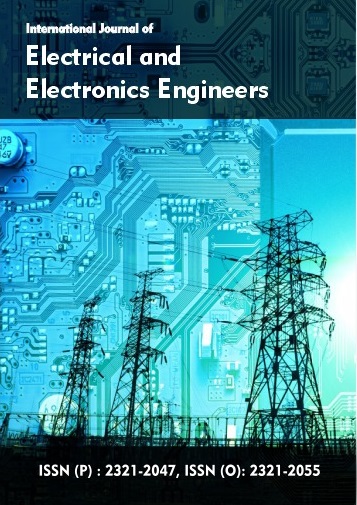IJEEE-International Journal of Electrical and Electronics Engineers

International
Journal of Electrical and Electronics Engineers (IJEEE) is dedicated to advancing knowledge,
fostering innovation, and promoting research excellence in the dynamic fields
of electrical and electronics engineering. As a peer-reviewed, biannual
publication in both electronic and print formats, IJEEE serves as a trusted
platform where researchers, academicians, industry professionals, and students
can share their original findings and contribute to the ever-expanding body of
engineering knowledge.
Engineering
has always been at the heart of human progress. From the early days of
discovery to the modern era of digital transformation, electrical and
electronics engineering has played a crucial role in shaping the way we live,
communicate, and connect. Power systems, renewable energy, microelectronics,
communication technologies, automation, robotics, and artificial intelligence
are only a few examples of areas where innovative engineering solutions
continue to redefine human possibilities. IJEEE is committed to providing a
space for such transformative work to be recognized and disseminated globally.
Every
paper submitted to IJEEE undergoes a rigorous blind peer-review process to
ensure that published research meets the highest standards of quality,
originality, and academic integrity. By upholding these principles, the journal
ensures that its readers and contributors alike can rely on IJEEE as a credible
source of knowledge and innovation.
More
than just a journal, IJEEE represents a community of thought leaders and
practitioners who are committed to sustainable development and technological
advancement. By publishing meaningful and forward-looking research, the journal
encourages solutions that not only address present challenges but also
safeguard resources and opportunities for future generations.
We
warmly invite scholars and professionals from across the globe to contribute
their valuable work to IJEEE. Together, we can drive innovation, strengthen
academic discourse, and shape the future of electrical and electronics
engineering.
